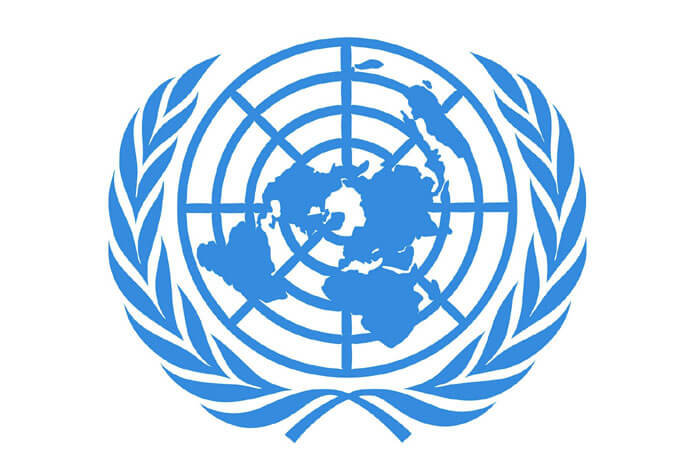It appears timely and opportune for Belize’s civil society organizations to clarify to the Government of Belize how it can contribute to implementing the measures which they have identified and jointly declared as essential governance improvement requirements. This process is undergirded by the Principle of Civil Society Inclusion, which is founded on the role envisaged for civil society by the UNCAC, Part 1, Article 5:
“”Each State Party shall, in accordance with the fundamental principles of its legal system, develop and implement or maintain effective, coordinated anti-corruption policies that promote the participation of society and reflect the principles of the rule of law, proper management of public affairs and public property, integrity, transparency and accountability.”
With this is mind, it seems advantageous for Belize’s civil society organizations to adopt a Principle of Inclusion as a practical mode for participation in the functions of all National Integrity Institutions concerned with implementation of the UNCAC provisions.
The effectiveness of the Principle of Civil Society Inclusion resulting from the appointment in the Senate of a fourth social partner/civil society has demonstrated its democracy-enhancing attributes in the deliberations of that body.
Its adoption in the newly reconfigured Joint Public Accounts Committee of the National Assembly follows the Senate model and is anticipated to enable this entity to perform its oversight functions in the proper and meaningful manner contemplated by the Standing Orders.
In order to establish balance, integrity and transparency in the conduct of the respective responsibilities of Belize’s National Integrity Institutions, legislative action is required for the operationalizing of the Principle of Civil Society Inclusion. The strategy takes the form of providing membership participation in these institutions through the involvement of representatives from the four social partners — Labour, Private Sector, Non-Government Organizations and the Church.
This portends to remedy the structural defect of neutered citizens’ participation in the processes of governance where ruling party predominance and unrebutted political control perpetuates the façade of democracy.
What is to be done?
The following enabling legislative changes for the recomposing of the National Integrity Institutions are envisaged:
1. The Integrity Commission—
Amendment of Part 2, Section 2 of the Prevention of Corruption in Public Life Act 2007–
(i) To provide for appointment by the Governor General of one member each nominated by the 4 social partner organizations
(ii) To provide for appointment on a rotating basis of a chairperson from among the social partner members
https://www.oas.org/juridico/spanish/mesicic2_ blz_prevention_corruption_act.pdf
2. Amendments to the Belize Constitution http://www.national assembly.gov.bz/wp-content/uploads/2017/03/Belize-Constitution-2017updated-March.pdf
(i)The Belize Advisory Council—
Amendment of Part V Section 54(2) of the Belize Constitution to provide for appointment by the Governor General of a member who is jointly nominated by the four social partner organizations
(ii) Elections and Boundaries Commission
Amendment of Part VI, Section 88(2) of the Belize Constitution to provide for appointment by the Governor General of one member each, nominated by the four social partner organizations
(iii) The Public Service Commission
Amendment of Part VIII, Section 54 (2) of the Belize Constitution to provide for appointment by the Governor General of one member each nominated by the four social partner organizations.
The Tenth Constitutional Amendment Bill which has been introduced into the House of Representatives includes a provision for membership on the PSC of a representative of the Leader of the Opposition. This, it should be noted, affords no effective safeguard for reversing the practice exhibited by both Administrations to politically control the Public Service recruitment process.
Application of the Principle of Civil Society Inclusion in this process will establish transparency in decision-making, adherence to the rule of law, and facilitate restoration of the merit-based system of recruitment as contemplated by UNCAC Article 7, Prevention Measures: “Each State Party shall, where appropriate and in accordance with the fundamental principles of its legal system, endeavour to adopt, maintain and strengthen systems for the recruitment, hiring, retention, promotion and retirement of civil servants and, where appropriate, other non-elected public officials: That are based on principles of efficiency, transparency and objective criteria such as merit, equity and aptitude.”
3. Pending Legislation
The Principle of Civil Society Inclusion should now be reflected in the proposed Public Contracts Commission so that it includes one member each appointed by the Governor General, nominated by the respective social partner organizations.
Implementing the UNCAC —Need for a Road Map and Timelines
The current approach being taken by the Government of Belize to implement the UNCAC provisions is ad hoc, piecemeal and reactive. There is need for a clear roadmap with timelines based on meaningful consultations with the social partners on the way forward.
Note should be taken of the comments and recommendations contained in the July 2019 Haiti-Tuvalu Peer Group Review Report on Belize’s First Cycle Country Assessment of UNCAC components relating to Criminalization & Law Enforcement, and International Cooperation. It is necessary to promote greater awareness among all stakeholders of the requirements for implementation of the First Cycle peer group recommendations. This should be pursued with an understanding that there should be a final gap analysis which addresses the deficiencies in comprehensiveness caused by the exclusion of the social partners from the Country Assessment and Peer Review process. With respect to the implementation of the UNCAC Second Cycle Review of Prevention and Asset Recovery Measures, this requires immediate attention, more so because the GOB introduction of the Tenth Constitutional Amendment Bill is not consistent with the UNCAC provisions.
The recommended roadmap should include consultation timelines on the extant legal issues relating to whistleblower, political campaign finance, and electoral reform.

